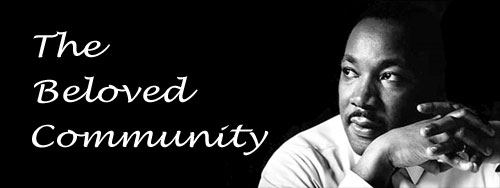THIS IS THE FINAL BLOG IN A SERIES OF TEN BY SOUTH ATLANTA COMMUNITY FACILITATOR, DAN CRAIN FROM A MINI-BOOK CALLED, “CAN YOU HELP ME?
The New Humanity Happens
In Ephesians 2, Paul sees one aspect of Christ’s atoning work as breaking down the divisions between the Jews and the Gentiles. As a sign of reconciliation among cultures and classes a whole new people group is formed that is called the church. When a new people group of different cultures, races and classes comes together and learns to ask the questions, “Can you help me”, something new comes out. When a diverse community comes together and all parties contribute to something bigger than themselves I believe that Christ honors this and it results in “everyone coming together and helping each other.” [1]
This was Martin Luther King Jr’s vision of the beloved community. “The ultimate aim of SCLC is to foster and create the ‘beloved community’ in America where brotherhood is a reality. . . . SCLC works for integration. Our ultimate goal is genuine intergroup and interpersonal living — integration.” For this to happen King says that the holy outcast takes a prime seat; “It is . . . essential to notice that the two elements, the holy outcast and the blessed community, must go together. Without the vision of restored community, the holiness ascribed to the poor would fall far short of politics and result in a mere perpetuation of charity and service activities’’ [On Not Leaving It to the Snake (Macmillan, 1967). P. 133].
Finally, I believe that for the New Humanity to take shape it means that the dominant culture listens to the pain and frustration from those that are coming out of oppression. Five years ago I was having a conversation with an African-American pastor about the training Dignity Serves and one particular exercise called “Hopes and Concerns.” The main purpose of the exercise is to help people realize that they don’t know what’s best and their ideas are not always the best idea for the poor or another culture or class. I shared with the pastor that the exercise made me realize my narcissism towards the poor and other cultures and that I don’t know what’s best. As soon as I mentioned those words, “I don’t know what’s best”, the pastor almost jumped out of his seat and said, “There! That’s what I have been trying to tell my white friends all along!”
It has taken me years to unpack as to why he reacted the way he did towards me. I am still uncovering and learning the dynamics of race in our culture. From my experience as a white male with a Masters Degree we are so used to being right and having things our way that we fail to receive other people’s life experiences and ideas. For him to have a white man be honest and vulnerable before him about his lack of knowledge was a breath of fresh air and I believe one of the first steps towards living out the New Humanity, which Christ is building here on earth.
We all need help and need to learn to receive from each other, particularly the vulnerable. It is only then that we can begin to become the Beloved Community.
So, next time you interact with someone that is vulnerable, ask different questions, not what they need or what you can do for them, but can you help me? I believe this is the way of Jesus in which we get a glimpse of the coming kingdom from Revelations 7; “After this I looked, and there before me was a great multitude that no one could count, from every nation, tribe, people and language, standing before the throne and before the Lamb.”
[1] Thomas Dunlap; “Flow Co-ordinator” at Thirkield University



Give your comments